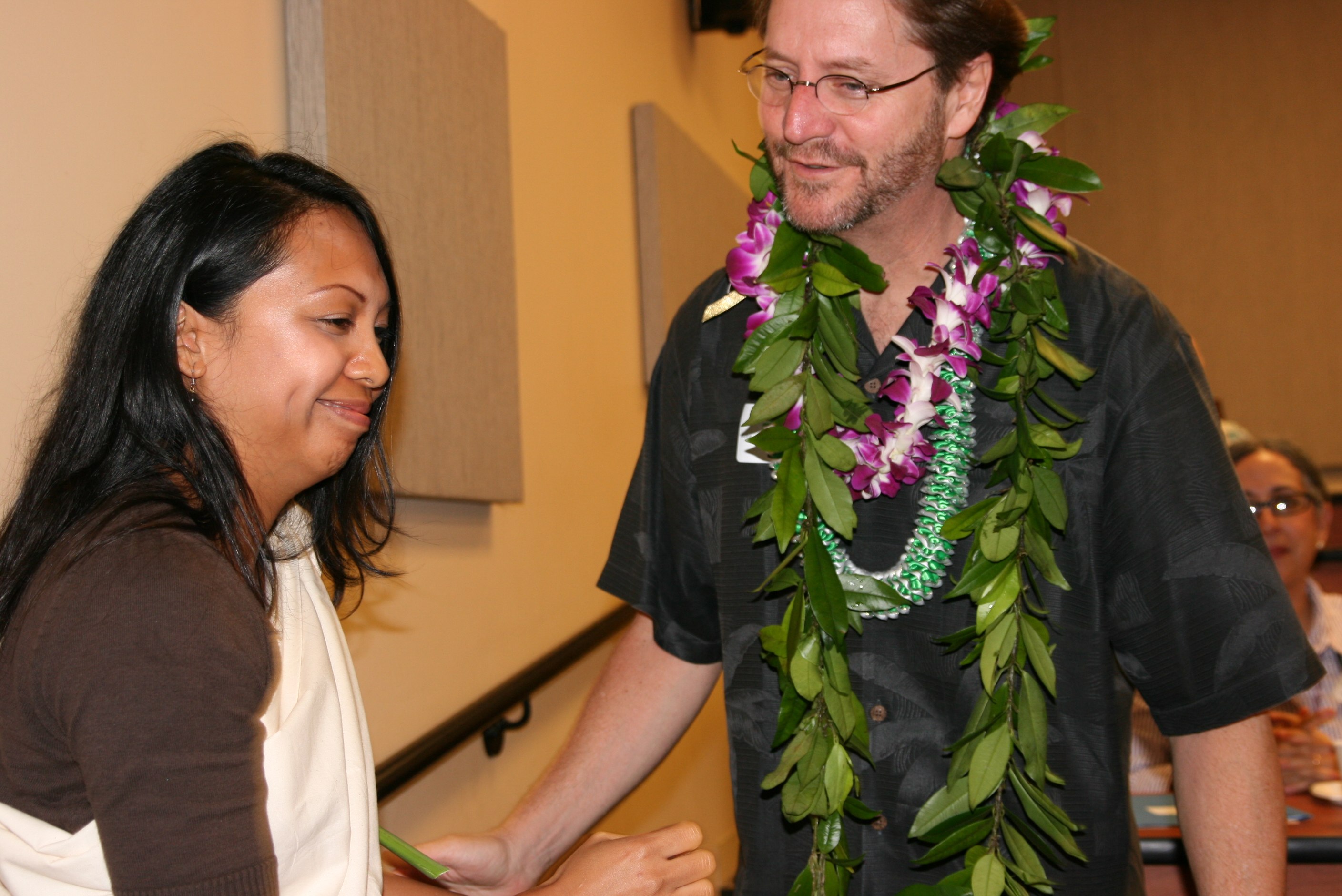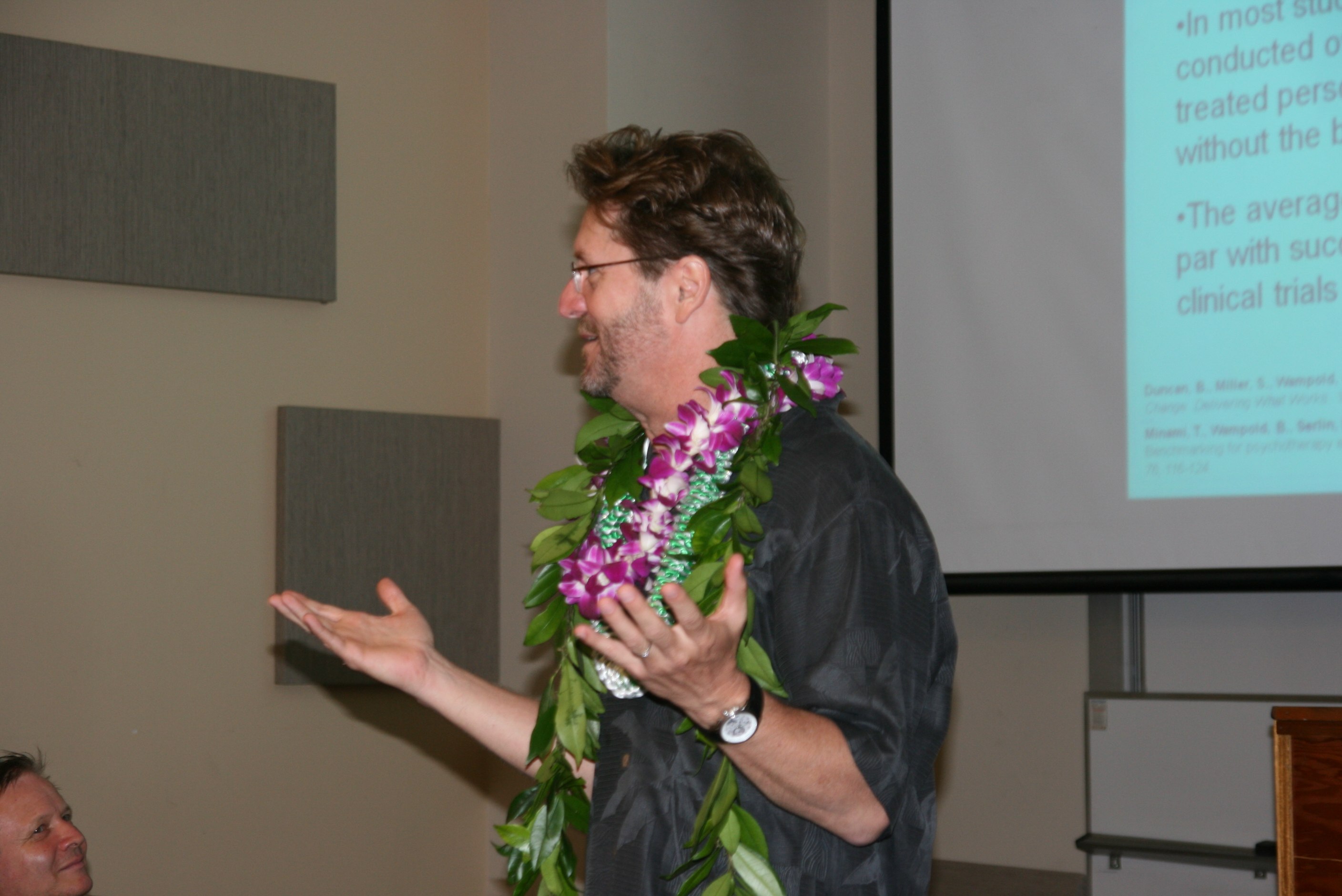May 4th, 2011
Copenhagen, Denmark


Just finished my first day of a two week trip covering spots in Denmark and Holland. Yesterday, I traveled to Copenhagen from Hilo, Hawaii where I was presenting for the Hawaiian Association of Marriage and Family Therapy. Dr. Gay Barflied (pictured on the far left above) spent years lobbying to bring me to the “Big Island” for the conference, where I spoke about the latest research on expertise and excellence in the field of behavioral health. I met so many dedicated and talented clinicians in Hilo, including marriage and family therapist, Makela Bruno-Kidani (pictured in the middle photo above) who started the day off with a traditional Hawaiian chant and then presented me with two beautiful lei to wear during the event.
On a break, Gay mentioned an article that appeared in the May/June 1995 issue of AHP Perspective. In it, she said, Maureen O’Hara, president of the Association for Humanistic Psychology, quoted one of the first articles me and my colleagues wrote on the common factors, “No More Bells and Whistles” (I’ll upload a copy to the “publications and handouts” section of the website as soon as I’m back in the States). Carl Rogers, she said, would have been laughing (happily, that is) had he read the findings we cited documented the lack of differential efficacy of competing treatment approaches. We had, in essence, proved him right!
“It turns out,” OHara wrote, “that Miller, Hubble, and Duncan come to similar conclusions. Carl Rogers was right. After all our forays into the dizzing arcana of paradoxical interventions, inner children, narrative therapy, EMDR, behaviorism, psychopharmacology, bioenergetics, TA, Jungian analysis, psychodrama, Gestalt, and so on down the entire list of hundred brand named therapies, what actually creates change is the…creation of a relationship between client and therapist…”.
I’d never seen the article before. It brought back very positive memories about the journey that has led most recently to the study of excellence. Indeed, as we point out in the lead article in the upcoming May/June 2011 issue of the Psychotherapy Networker, relationships are not only the “sine qua non” of healing for clients but are responsible for the professional growth for therapists.

.jpg)
.jpg) Researchers
Researchers 